Have you ever woken up feeling like you’ve battled a dragon in a far-off land, only to realize you’re just at home, facing the dragon of sleep deprivation? Well, you’re not alone. Just like many people out there, maybe you are a victim of sleep debt. But what does sleep debt mean?
Sleep debt is becoming a growing concern in our 24/7, always-on world, and it’s about time we unmask this invisible monster. We’re here to help you understand what is sleep debt, the symptoms of sleep debt, the effects of sleep debt, and how to overcome sleep debt without needing a magical potion.
So, are you ready to know more about what does sleep debt means? Let’s go then!
Related: 13 Terrifying Health Effects of Sleep Deprivation
What Does Sleep Debt Mean?
So, what is sleep debt exactly? Imagine for a moment that sleep is a currency and you have a unique “Sleep Bank” specifically dedicated to it. Just like any savings account, you should be making daily deposits to maintain a healthy balance.
For adults, the ideal deposit is about 7-9 hours of sleep every night. Now, consider what happens if one night you fall short and manage only 5 hours. You’ve just entered into sleep debt, owing your bank 2-3 hours.
But here’s the tricky part. Unlike financial banks where you can ignore a small debt for a while, the Sleep Bank is more demanding. Each night you miss out on sufficient sleep, your debt continues to mount. Over a week, a couple of hours missed each night can tally up, leaving you heavily overdrawn.
Like any debt left unaddressed, the consequences compound, impacting not just your energy, but your overall health and well-being. The longer the debt, the higher the “interest” you pay in terms of fatigue, cognitive impairments, and potential health issues.
Symptoms Of Sleep Debt
These are the major and defining symptoms of sleep debt you should look out for:
- Constant Yawning: The most classic and noticeable sign of sleep deprivation.
- Heavy Eyelids: Feeling like it’s a struggle to keep your eyes open during the day.
- Impaired Concentration: Difficulty focusing on tasks, often resulting in decreased productivity.
- Mood Fluctuations: Quick mood changes, increased irritability, and unexpected emotional responses.
- Forgetfulness: Challenges in retaining new information or recalling details.
- Increased Appetite: Particularly for unhealthy foods high in carbs and sugar.
- Reduced Motor Skills: Clumsiness or slower physical reactions.
- Decreased Libido: A decline in interest or desire for intimate activities.
- Weakened Immune System: Frequent illnesses or taking longer than usual to recover from minor ailments.
- Increased Sensitivity to Stress: Feeling overwhelmed easily and struggling to manage everyday stressors.
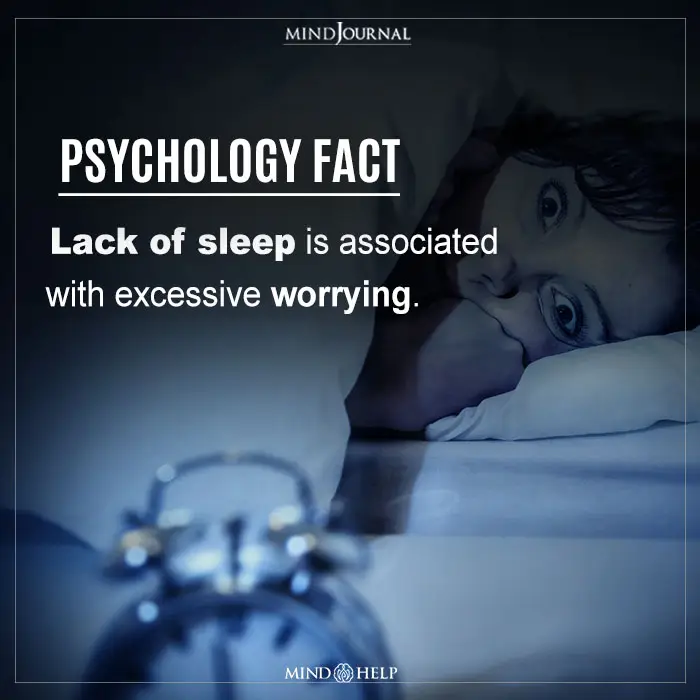
Effects Of Sleep Debt
Here’s a rundown of the potential consequences and effects of sleep debt:
- Cognitive Impairments: Reduced decision-making abilities, poor judgment, and slower reaction times.
- Health Risks: Higher susceptibility to conditions like obesity, diabetes, heart disease, and hypertension.
- Mood Disorders: Increased risk of developing mood-related issues such as depression and anxiety.
- Weakened Immune System: Reduced ability to fend off infections, leading to more frequent illnesses.
- Hormonal Imbalances: Disruption in the production of critical hormones like cortisol (stress hormone) and insulin.
- Reduced Libido: A decline in sexual drive and performance, often due to hormonal changes.
- Cardiovascular Issues: Elevated risks for high blood pressure, heart attacks, and strokes.
- Growth Impairment: In children and teenagers, chronic sleep debt can hinder growth due to reduced release of growth hormones.
- Skin Aging: Premature aging of the skin, leading to fine lines, dark circles, and reduced skin health.
- Memory Issues: Reduced capability to form and retain long-term memories.
Now that we know what does sleep debt mean, and the symptoms and effects of sleep debt, let’s find out how to overcome sleep debt.
Related: 10 Scientifically Proven Effects of Not Getting Enough Sleep
How To Overcome Sleep Debt: 8 Effective Strategies For Good Sleep
1. Prioritize sleep.
This may seem like a no-brainer, but in our hustle-driven world, it’s easy to side-line sleep. Begin by understanding the value of sleep for both mental and physical health. Schedule sleep just like you’d schedule meetings or workouts.
Create a night-time routine that signals your body it’s time to wind down and rest. This could mean reading, taking a warm bath, or practicing deep-breathing exercises.
2. Maintain a consistent schedule.
Our circadian rhythm AKA, internal body clock, relies on consistency. Going to bed and waking up at the same time daily, even on weekends, helps regulate this clock.
Over time, this consistency will make waking up feel more natural and less groggy.
3. Nap wisely.
Napping can be beneficial to make up for lost sleep, but it’s essential to do it right. Limit naps to 20-30 minutes to avoid falling into deep sleep and waking up groggier than before. Avoid napping too late in the day as it can interfere with night-time sleep.

4. Create a sleep-conducive environment.
Your bedroom should be an oasis of relaxation. This means a comfortable mattress, darkness (consider blackout curtains or an eye mask), quietness (maybe a white noise machine if needed), and a cool room temperature.
These factors can significantly enhance sleep quality.
5. Limit screen time before bed.
Blue light emitted by phones, tablets, and computers can disrupt the production of melatonin, the sleep-inducing hormone.
Try to stay away from your phone or other electronics an hour before bed. If you must, consider using blue light filters on your devices.
Related: How Screen Time Affects Quality Of Sleep And Overall Health of Young Adults
6. Be mindful of your diet.
What you consume can significantly affect your sleep. Limit caffeine in the afternoon and evening, and be wary of alcohol.
While it might make you fall asleep faster, alcohol can disrupt your sleep cycle later in the night. Also, avoid large meals close to bedtime, as digestion can interfere with sleep.
7. Exercise regularly.
Regular physical activity can help regulate sleep patterns. However, the timing is crucial.
Morning or afternoon workouts can be beneficial, but vigorous exercise too close to bedtime can be counterproductive as it may energize you.
8. Seek professional help, if needed.
If you’ve tried various strategies and still struggle with sleep, it might be time to consult a sleep specialist.
Underlying issues like sleep apnea, insomnia, or restless legs syndrome might be the culprits. A professional can provide specialized guidance and treatment.
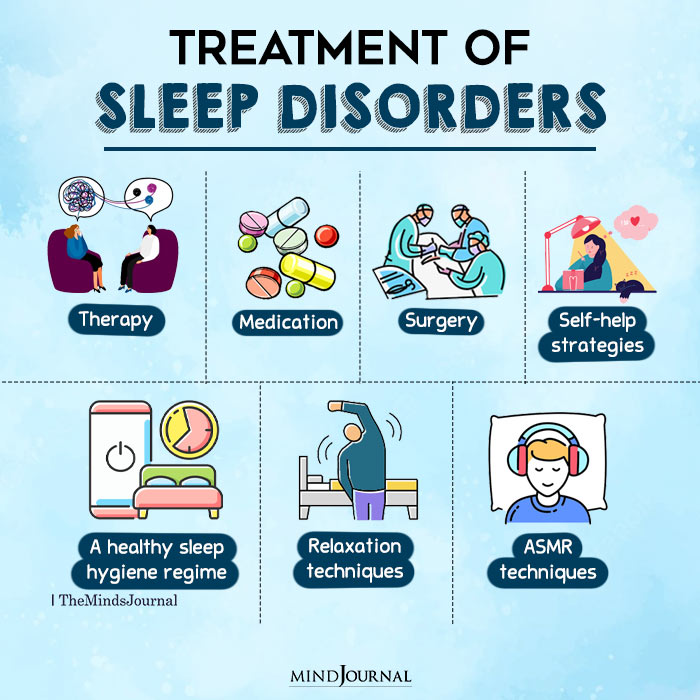
Bottomline
Overcoming sleep debt isn’t something that can be achieved overnight (pun intended). Just as it takes time to accumulate, recovering from it requires patience, persistence, and a steady commitment to healthy sleep habits.
It’s a marathon where consistency in practice leads to long-term benefits. Instead of seeking instantaneous solutions, it’s crucial to understand what does sleep debt mean in the first place, and that good sleep is nurtured over time, much like how a marathon runner trains steadily for the final race.
Related: 20 Tips For A Better Sleep That Don’t Require A Prescription
Have you ever noticed symptoms of sleep debt, and did you know what does sleep debt mean before coming across this article? Let us know your thoughts in the comments down below!
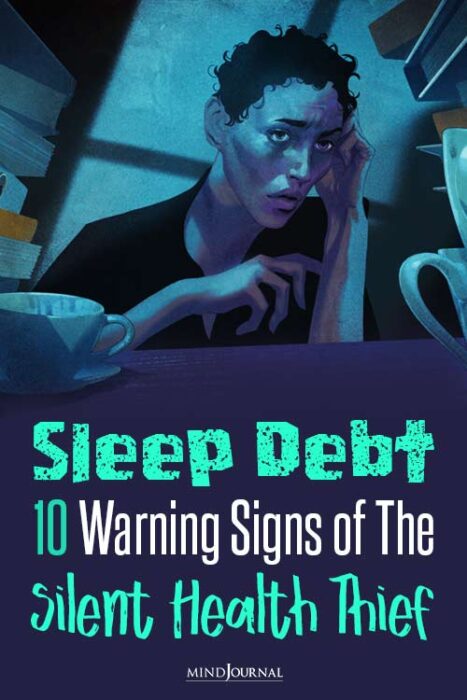
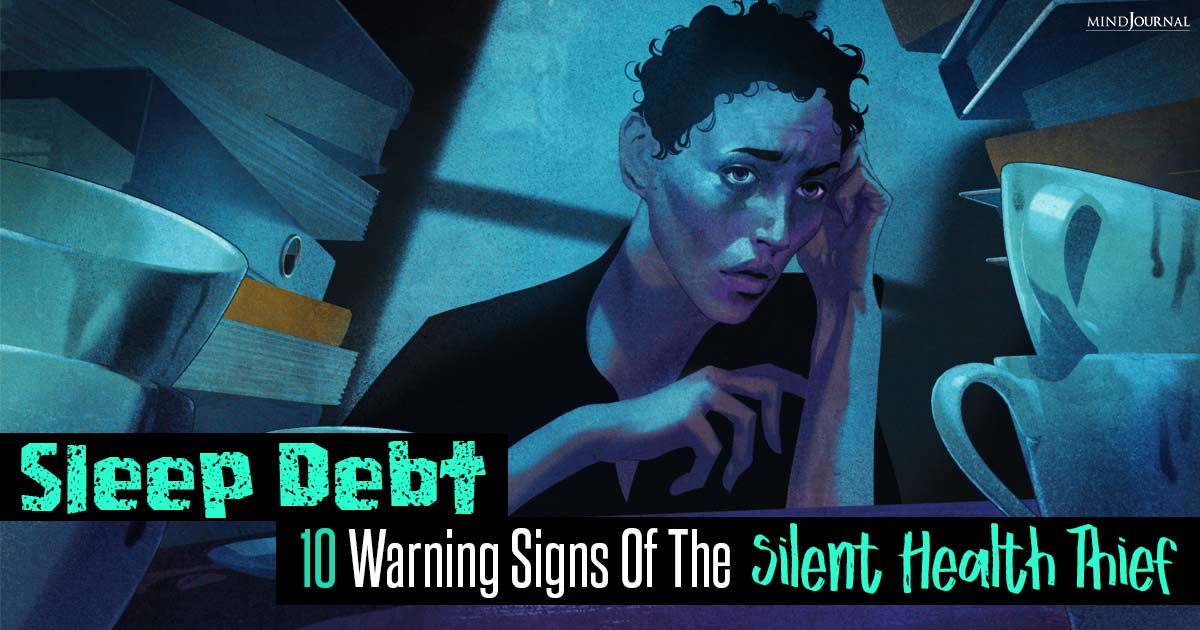

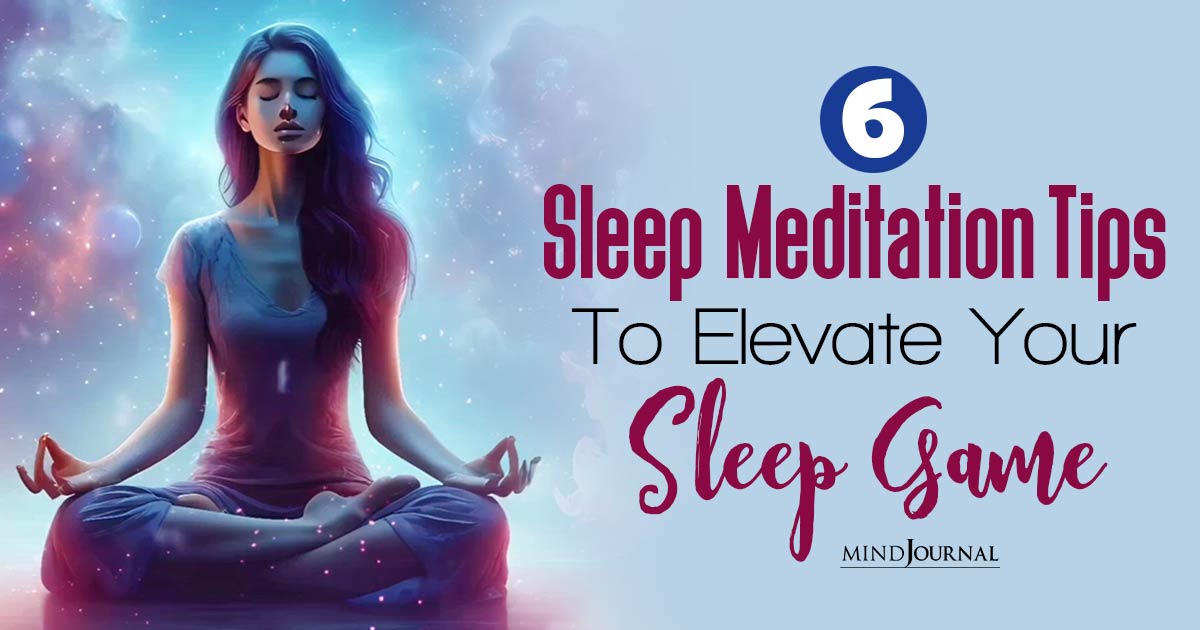


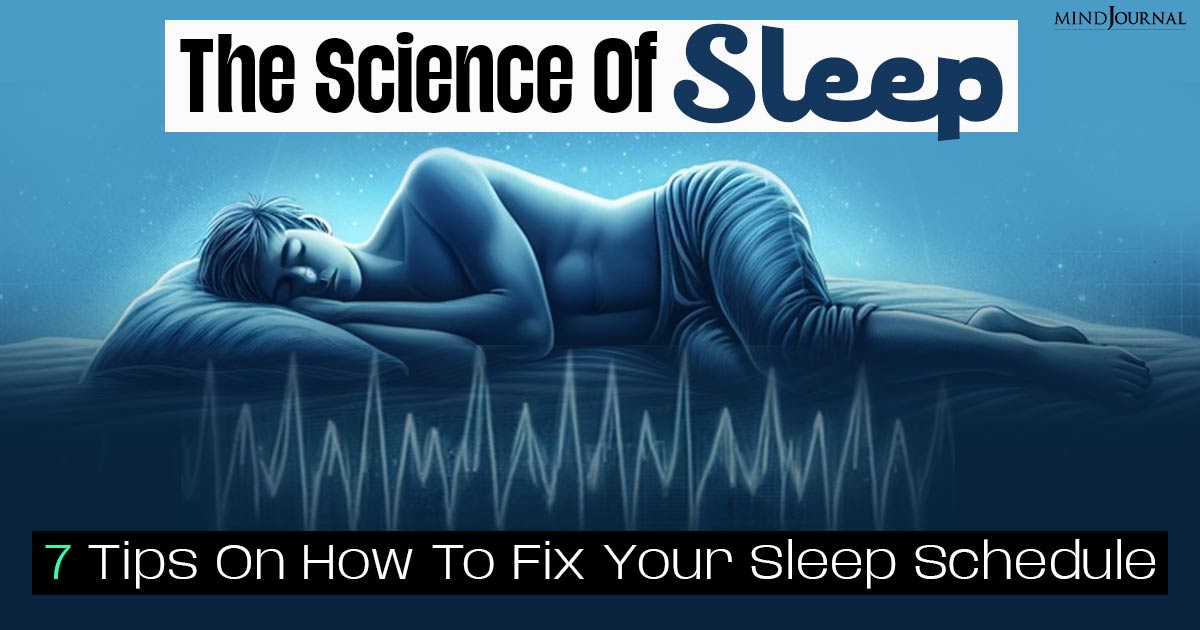
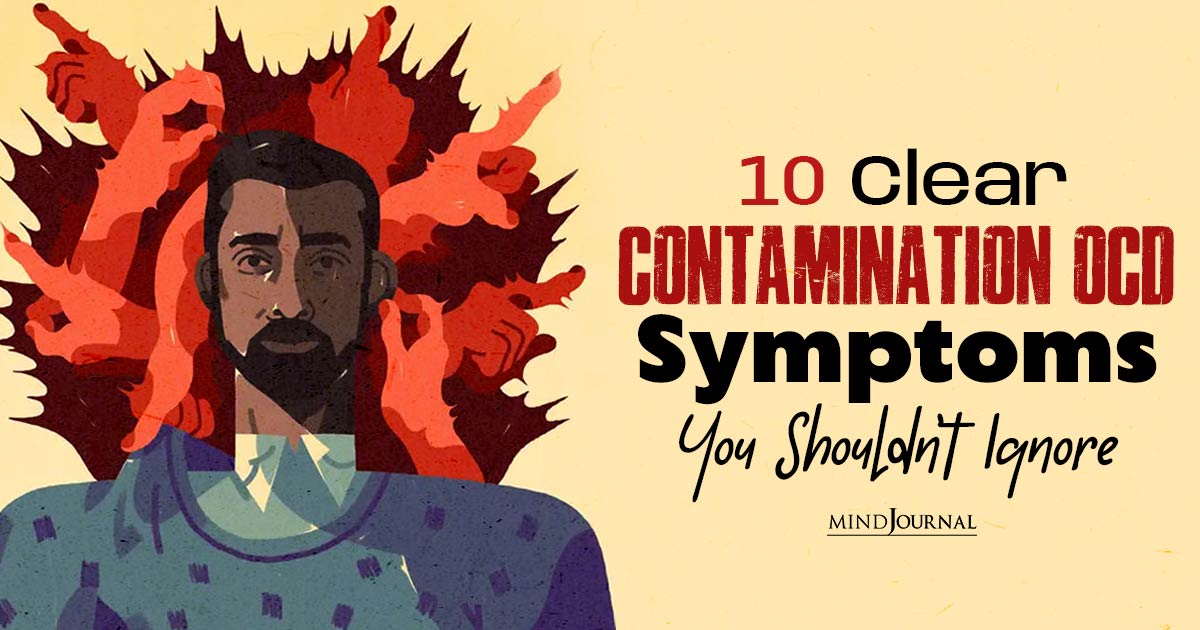

Leave a Reply
You must be logged in to post a comment.